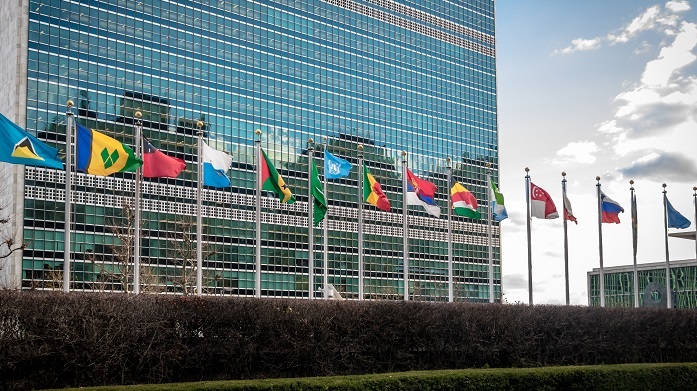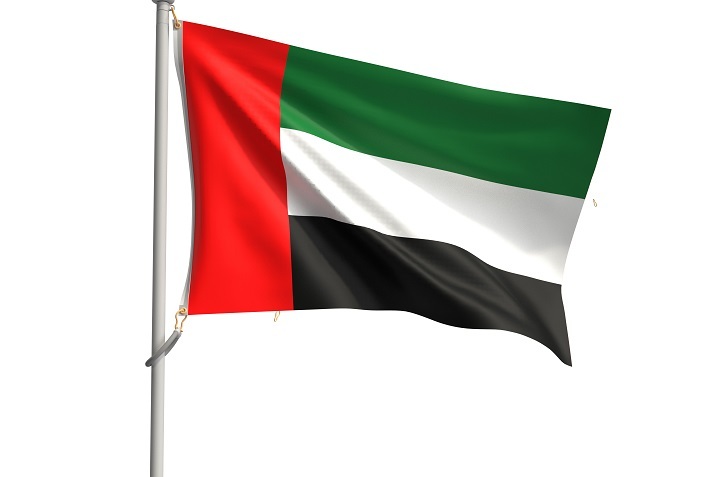
 Data Structure
Data Structure Networking
Networking RDBMS
RDBMS Operating System
Operating System Java
Java MS Excel
MS Excel iOS
iOS HTML
HTML CSS
CSS Android
Android Python
Python C Programming
C Programming C++
C++ C#
C# MongoDB
MongoDB MySQL
MySQL Javascript
Javascript PHP
PHP
- Selected Reading
- UPSC IAS Exams Notes
- Developer's Best Practices
- Questions and Answers
- Effective Resume Writing
- HR Interview Questions
- Computer Glossary
- Who is Who
What is the full form of GCC?
Introduction
Gulf Cooperation Council (GCC) is a political organisation that was drawn between six Middle Eastern countries in the Persian Gulf region. On May 25, 1981, the Gulf Cooperation Council (GCC) was formed.
Formation of GCC
The worldwide oil crisis in the early 1970s caused a large spike in oil prices, resulting in a massive migration of riches into the Gulf area.

The GCC member nations recognised the importance of coordinating their policies and actions to capitalise on these newfound riches. In 1981 on May 25, The Gulf Cooperation Council (GCC) was created in UAE and the six members signed the GCC Charter.
Article 4 stressed the importance of their populations' interactions, links, and areas of engagement increasing and deepening. The groundwork of GCC is stated in the preamble of the GCC Charter. It confirms the interactions, characteristics, and structures established in the religion of Islam, the belief in shared fate, and a single objective, and that cooperation among these nations will fulfil their supreme objectives.
The decision represents the history, community, and cultural stories. They are linked by significant religious and cultural ties, and their inhabitants have strong kinship ties. All of these factors, together with a single geographical entity and have facilitated interactions and interplay between them.
GCC Member States
The GCC's six member nations are the United Arab Emirates (UAE), the Kingdom of Bahrain, the State of Kuwait, the Sultanate of Oman, the State of Qatar, and the Kingdom of Saudi Arabia.
GCC Structures and Functions
The GCC works through a structure of committees and councils that are in charge of various elements of the organisation's operations. The Supreme Council, the GCC's highest decision-making body, gathers once a year to discuss and organise policies and operations. It is composed of the leaders of the member nations. Its president is cycled between the Member States on an ongoing basis in alphabetical order. In all the meetings the Member States hold two-thirds of the attendance. Each of the member nations' votes holds the value of one.
The Member State holds the office of Ministerial Council. It consists of the Foreign Minister of all Member States and other Ministers. It meets on a regular basis every three months. A Member State may request a session, which must be endorsed by another Member State.
The GCC's executive body, the Secretariat, is responsible for carrying out the Supreme Council's decisions. The Secretariat General's performance primarily involves the development of special studies concerning collaboration, coordination, organising, and development for widespread action, the creation of regular updates on the GCC's work, and the management of their own decisions, the preparation of studies and reports on the requirements for the Ministerial Council or Supreme Council or, the creation of regulations for the convening of conferences of various organs.
The objectives of the GCC are mentioned in the GCC Charter. GCC's main function is to coordinate, integrate, and interconnect the Member States in all fields, hold the members with strong bonds, and formulate such regulations in fields like administration, tourism, trade, legislation, customs, finance, and economy, as well as fostering technological and progress in the field of science to develop agriculture, mining, water, industry, and animal resources, even to establish institutes to conduct scientific research.
GCC Relations with other countries and organizations
The GCC is affiliated with a number of international and regional institutions, including the United Nations, the Arab League, and the Organisation of Islamic Cooperation. The GCC has also forged strategic partnerships with a number of countries, including the US, China, and India. The Gulf is one of India's most important commercial partners.

The increasing volume of energy imports into India reflects the country's rising energy interdependence. There is also the possibility of significant Gulf investments in the Indian hydrocarbon industry. India has avoided engagement in local or regional issues in the region because Indian objectives require peace and regional stability rather than power projection. The increased political participation has been complemented by increased security collaboration, particularly in counter-terrorism. India and its Gulf neighbours are also making preliminary moves towards defence cooperation.
The GCC holds an active position in regional security and stability. The Gulf Cooperation Council (GCC) started a military intervention in Yemen in 2015 to back the Yemeni government against Houthi insurgents. The GCC has also been active in conflict resolution attempts in Syria and Libya.
Conclusion
The Gulf Cooperation Council is an important regional organisation that has played an important role in encouraging economic, political, and social cooperation among its member countries. The GCC has created a solid institutional structure that enables successful policy coordination and execution and at the same time allows to maintain peace all across the continent.
FAQs
Q1. What was discussed in the 41st Summit held by GCC?
At the 41st GCC Summit, a solidarity and stability agreement was reached to lift all sanctions against Qatar and reopen their land, sea, and air borders to Qatar.
Q2. Where was the GCC concluded?
The GCC was concluded in Riyadh, Saudi Arabia in 1981.
Q3. Which countries have applied for GCC?
The countries Yemen, Jordan and Morocco have applied for membership in GCC.

